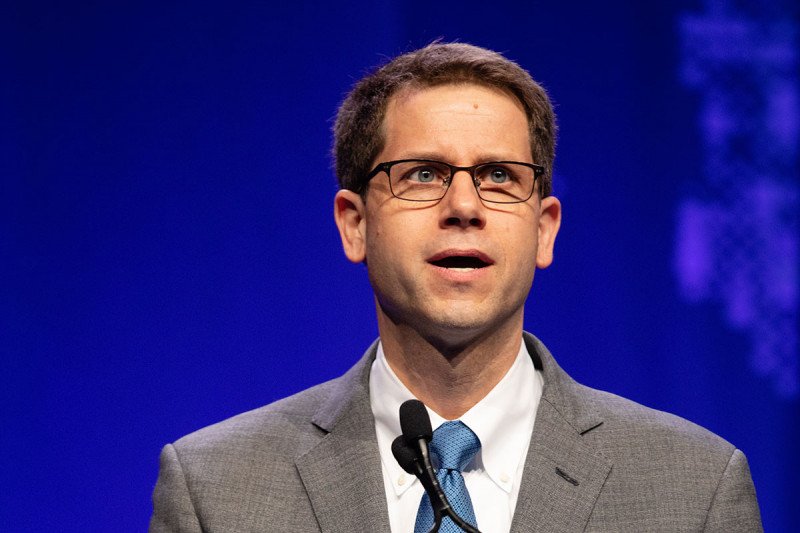
At this year’s American Society of Clinical Oncology (ASCO) annual meeting, researchers from around the world have gathered to learn about the latest advances in cancer treatment. Much of the research being discussed highlights meaningful improvements in cancer care. At least one study, however, is attracting a lot of attention despite disappointing results.
That study, for advanced soft-tissue sarcoma, was called the ANNOUNCE trial. ANNOUNCE was a randomized study that compared a combination treatment of the chemotherapy drug doxorubicin and the targeted drug olaratumab (Lartruvo®) to doxorubicin on its own. The trial found that adding olaratumab to chemotherapy did not increase survival.
Based on an earlier report from this phase III study, Eli Lilly, the company that makes olaratumab, announced in April 2019 that it is withdrawing the drug from the market.
Memorial Sloan Kettering sarcoma expert William Tap led the ANNOUNCE trial as well as earlier studies on olaratumab. In an interview, he talked about why the findings from the study were disappointing and what’s next for sarcoma treatment.
What was MSK’s role in the research that led to olaratumab’s approval?
We led the phase II trial, which was published in June 2016. That study included 133 people with many subtypes of sarcoma. The participants were randomized to receive either olaratumab and doxorubicin or doxorubicin alone. All of the participants had advanced disease that had spread beyond the original tumor.
The average survival of people who got the combination was 26.5 months, compared with 14.7 months for those who got standard treatment, which was doxorubicin alone. Sarcoma is very hard to treat, and there are few good options once it has spread and can no longer be eliminated with surgery. The findings that olaratumab extended life for nearly a year were remarkable. We felt very hopeful based on those results.
The drug was given accelerated approval from the US Food and Drug Administration in October 2016 based on that study’s impressive results and the unmet need for sarcoma treatments. It also received conditional approval in Europe.
What are you presenting at ASCO this year?
These are the results from the follow-up phase III trial. The FDA required this study to confirm the benefit seen in the earlier trial. Unlike the earlier study, this one unfortunately was negative. Overall survival, which is how long someone lives after starting treatment, was not statistically higher in the group that got olaratumab.
Nearly three-quarters of new cancer drugs fail in phase III trials. But it’s much more unusual for a drug to fail a phase III trial after receiving accelerated or conditional approval.
Those of us in the sarcoma research community are still trying to understand why we saw such different results between the two trials. There are a lot of possibilities. It may be differences in the way the two studies were designed. It could also be the types of patients who were enrolled in the studies and the specific subtypes of disease that they had.
One thing that’s important to mention is that olaratumab didn’t add any serious side effects, compared with chemotherapy alone.
What did you learn from this study?
Sarcoma is a rare disease, and anytime you’re able to collect this much data on a rare disease, it’s going to be useful. There are not many large, multicenter studies on sarcoma. What we’ve learned will be helpful in our overall understanding of this disease. It will also help us design other clinical trials in the future.
One remarkable outcome was that the survival in the control group, those who got only doxorubicin, was higher than what we’ve ever seen in any other phase III clinical trial. Many of these patients did quite well, even without receiving any benefit from olaratumab. This is the third time in the past five years where a negative phase III study has shown such measurable improvements in the control arm compared with historical outcomes.
There are likely several reasons that these patients did so much better than expected. We think it’s because of overall advances in the way this disease is treated — including progress in surgery, radiation, and supportive care. There have also been improvements in treating particular subtypes as we increase our understanding of what drives them.
I can’t overstate the exceptional effort from everyone who worked on the phase II and phase III trials. For this trial, we were able to enroll and care for 509 participants at 110 hospitals in 25 countries.
Eli Lilly announced in April that it was removing olaratumab from the market. What will happen to people who are already taking the drug?
At MSK, we are not recommending that anyone start taking the drug. For those who are already taking it, we are phasing out that treatment.
There are some patients who perceive that the drug is helping them. It’s possible it is, since sarcoma is a heterogeneous disease and not all tumors behave the same way. But we don’t yet have enough insight to know which subtypes or disease characteristics may respond to olaratumab.
The drug company is working with people who have been taking the drug and, in some circumstances, will continue to provide it. The details are still being determined.
What else should people know about this research?
This shows the complexity of researching a disease like sarcoma, which is actually not one cancer but about 50 or 60 diseases. Each sarcoma has its own biology. It’s important for us to continue studying all these different types so that we can develop more-effective, personalized therapies.
I’m worried that what happened with olaratumab will negatively impact the development of other sarcoma drugs. Because sarcoma is less common than many other cancers, it’s already hard to get funding for it. Treatment is getting better, as our results for patients in the control group showed, but there is still a great need to find better drugs.
This is just the nature of science sometimes. There is no reason to give up hope.




